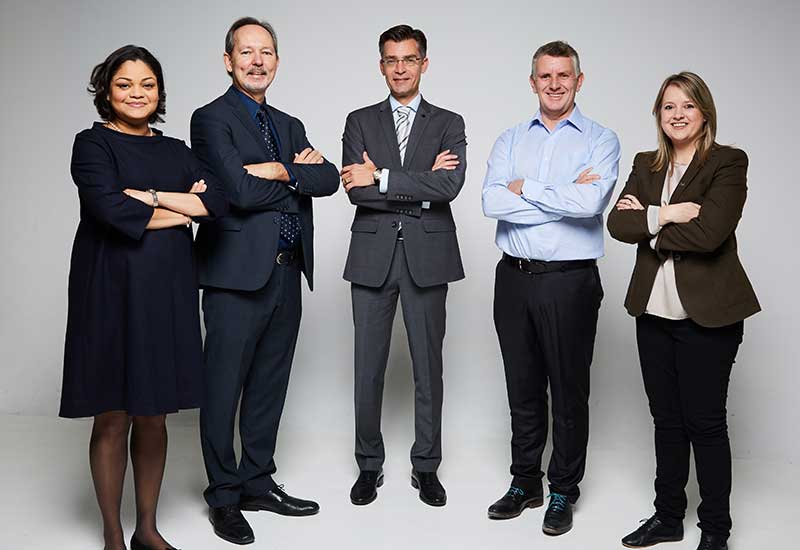 The group of human resources experts gathered together at ITP Media Group on October 31 to discuss pertinent issues.
The group of human resources experts gathered together at ITP Media Group on October 31 to discuss pertinent issues.
Do you think graduates are equipped to handle the real work environment?
Peter: We take on a trainee each year from EHL (École hôtelière de Lausanne) and my experience is that they bring with them that difference in thinking. They’ve got a foundation of knowledge and experience gained in hotel experience — obviously limited experience, but with a hunger and a passion to question, think about, suggest, and be part of. They’re not shy.
Laura: For us as hoteliers, we are a very traditional bunch, and with a lot of the students that come through, it’s about us taking care of them and allowing them the space to spread their wings. At the Emirates Palace, we have a very good leadership programme where they spend 12 to 18 months with us, and at the end, hopefully, they become assistant managers. That’s something we have not had before, even 10 years ago. It’s a resource that more and more we need to harness as companies.
Is it more challenging to get interns?
Laura: It usually depends on which country you’re in and the length of the internship.
David: We try and partner with more local universities and colleagues; however, with EHL, you have a lot of students from this market, and that you can bring back to this market.
I’ve been in the market for 15 years and it’s changed dramatically in that time. There’s been a much greater push for localisation, but it’s become even more intense now, to the point where, if you look at a country like Saudi Arabia, there’s a decree that every GM of a hotel has to be a Saudi national in three years. How do you do that? It’s a goal that we have to aspire to. As an example, Marriott launched a new programme, Tahseen, this year; it’s got 40 students on it, all Saudi nationals, a combination of both men and women.
They’ll go through an 18-month programme. And you can’t say to an intern or developee now that if they work hard, and do the time, and perform well, we may give them an opportunity. It has to be a guaranteed opportunity, in a specific timeframe, and at a specific salary level, as well. The expectations and demands are a lot greater. The crowning jewel is that you get a Cornell University qualification at the end of Tahseen, so it’s blending the experience with the degree.
As we’ve gone out to recruit, we did a video blog on Saudi Arabia and what it’s like to work in hospitality; this blew me away. We had a famous Saudi influencer in his 20s, and we asked him to come and work in the hotel for a day. He cleaned rooms, he answered telephones, he cooked food, and he cleaned pots and pans. He posted a 17-minute video online, and within less than two weeks it had half a million views and 150,000 likes, and we received 3,000 applications from Saudi nationals. These are people who saw that working in a hotel, in this industry, was not totally undesirable. They saw this guy cook and clean rooms, and they were still interested. There’s a myth buster in here somewhere — that the perception that we have created for ourselves is a self-fulfilling prophecy, not a reality.
A recruitment strategy has to be global, but also culturally relevant. A key part of the Tahseen programme is that we teach in Arabic. Whilst English is a requirement of the industry, you learn in your mother tongue better than you do in your second language. So you have to teach in the local language, and operate in the industry language.
Mark Reimer, Ecole hoteliere de Lausanne: You hit on an interesting point about the employers having to up their game in their offer to the employee. We see this through our recruitment fair. Every year we have more employers attending, only half of which are hospitality companies, meaning you’re not just competing with hospitality companies for the talent. That means that the students have multiple offers, so there’s got to be something attractive that will engage them.
David: You’ve just got to make it the most desirable workplace, one you can have fun being in.
Lynne: Look at all the hotels opening. We have to make sure that we have the right package so that people will be happy and stay. The generation has changed, their needs have changed, they want experiences.You need money, you need a work/ life balance, and that’s the challenge now — that there are so many jobs out there, people will come and go. The culture should be right.
Laura: It goes back to localisation. we’re opening in Oman and we have to do that there. Today, to attract people, even to get into the industry, millennials need to know what’s in it for them and their plans. We are working on something where we put plans in for the Saudis and, if it works, then we will be able to do the same for the Omanis. We have trained the person well enough that there shouldn’t be anything stopping us from giving them the next position. Governments are making us do this, and they are right to do so.

| Advertisement |








 Search our database of more than 2,700 industry companies
Search our database of more than 2,700 industry companies









